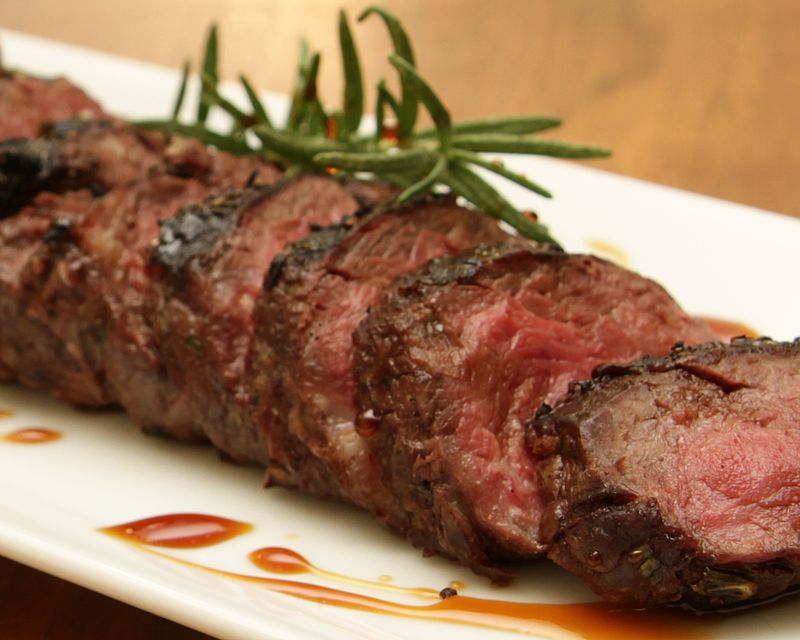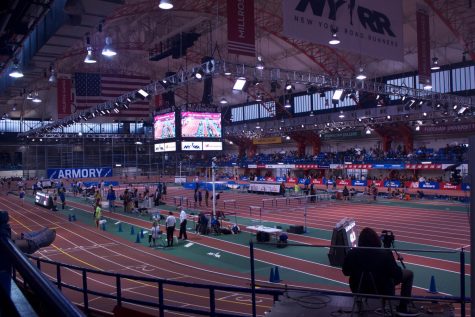Reconciling infatuation with food and environmentalist ideals
Tough, sweet pork with apple sauce. Toasted hot dog bun crab rolls. Sizzling breakfast sausages. Slapped together food truck lamb gyro. Sweet barbecue ribs sticky with Sweet Baby Ray’s. Perfectly well done, melt-in-your-mouth filet mignon. Styrofoam cradled baked chicken. Duck pancakes. Honey roasted ham. Beer battered fish and chips amuck with grease.
I could go on for another three paragraphs.
 Now if that didn’t make your mouth flood with saliva, you’re either 1. Sane, or 2. Not inclined towards meat. And it is this latter option which poses a daily conundrum for me – how can I reconcile my profound passion for all foods while maintaining an environmentally sustainable diet?
Now if that didn’t make your mouth flood with saliva, you’re either 1. Sane, or 2. Not inclined towards meat. And it is this latter option which poses a daily conundrum for me – how can I reconcile my profound passion for all foods while maintaining an environmentally sustainable diet?
Anyone who knows me can attest to my deeply personal connection with food. Whether the result of genetically inherited low blood sugar or enjoyment of the simple pleasures in life, I spend much of my day anticipating imminent meals and rewarding little individual successes with a variety of snacks. When presented with leftovers, I delight, and when presented with life’s woes, I take refuge in contemplating potential pleasing culinary combinations. I am not picky in the slightest – I relish a 99 cent plain slice with the same verve as Michelin-star borscht.
However, I have also come to understand that this privilege of indulging in such a range of food items has an unimaginably detrimental cost to the planet. Watching my older brother spend his days cutting class and raiding casino dumpsters for scraps with his friends to cook up and serve to the homeless of Downtown L.A. entrenched in me an awareness of food inequity which resulted in a constant obsession over wasting food, and crowned me lifelong queen of the Clean Plate Club. And although I’m not naturally inclined to sympathize with animals, countless childhood friends with dreams of becoming veterinary doctors convinced me that the treatment of livestock in massive, commercial farming facilities was the pinnacle of human capacity for evil.
Yet only this past summer was I made aware that my eating habits, specifically my devotion to meat and dairy, was the ruin of another of my mind’s central foci; the environment. When not savagely devouring some form of sustenance, I can often be found cursing the plastic container in which it was encased. But it has come to my attention that the meat and dairy industries have become the single largest contributor to climate change, eclipsing even oil. In fact, the top five meat and dairy corporations have usurped ExxonMobil, Shell, and BP in greenhouse gas emissions, with estimates that food production will be responsible for 80% of the greenhouse gas emissions by 2050.
I found this cataclysmic. Aside from the localized environmental degradation of unsafe farming facility practices which yields a swath of its own socio-economic injustices, these industries are hands down the main cause of increased global warming. 96% humidity in October? Thank the cows.
I quickly realized that I am markedly late to this understanding. At one point over the summer, I began to tuck in heartily to a late lunch when I was struck by the image of three friends to either side of me, two vegetarian, one vegan, whose plates teemed with hefty portions of yellows and greens. I stared down at my own to find a Health teacher’s dream come true – the quintessential balance of protein, grains, greens, et cetera – and hung my head. How could I possibly forsake my beloved teriyaki salmon and corn dogs? Yet how could I not, when a vegetarian diet is the single greatest way to reduce your environmental impact, cutting your carbon footprint by 73%?
Now, I have come to the recent conclusion that I do not, at this point in my life, have the strength of will to sacrifice such a divine source of pleasure from my appetite. Of course, it could quite easily be arranged, but I foresee a significant number of Wendy’s 4 for 4s in my future before I graduate university. However, as any old progressive food lover would preach, I encourage moderation in meat and dairy indulgence. Even lowering one’s intake of meat from six days a week to three can reduce the average Joe Schmo’s carbon footprint considerably.
All I can say is it’s a good thing I worship veggie burgers.
Violet Massie-Vereker writes the regular From Where I Stand column and is Opinions & Ideas Editor for the Pelham Examiner.
Violet Massie-Vereker is a senior at Pelham Memorial High School. Her experience in journalism includes writing for the News of Pelham for the past two...













